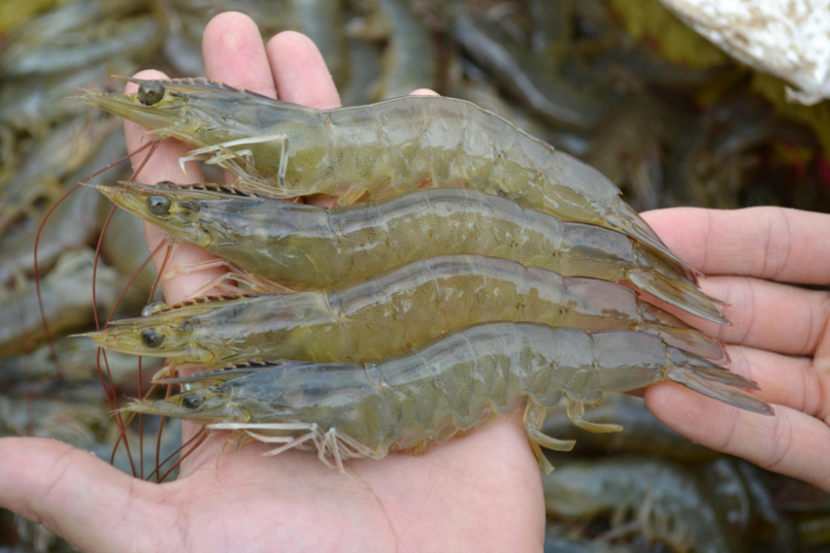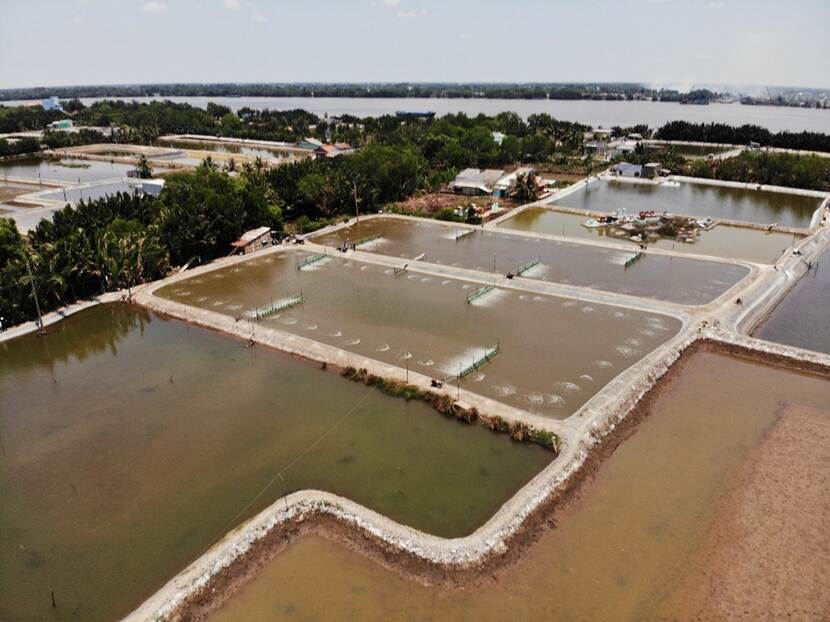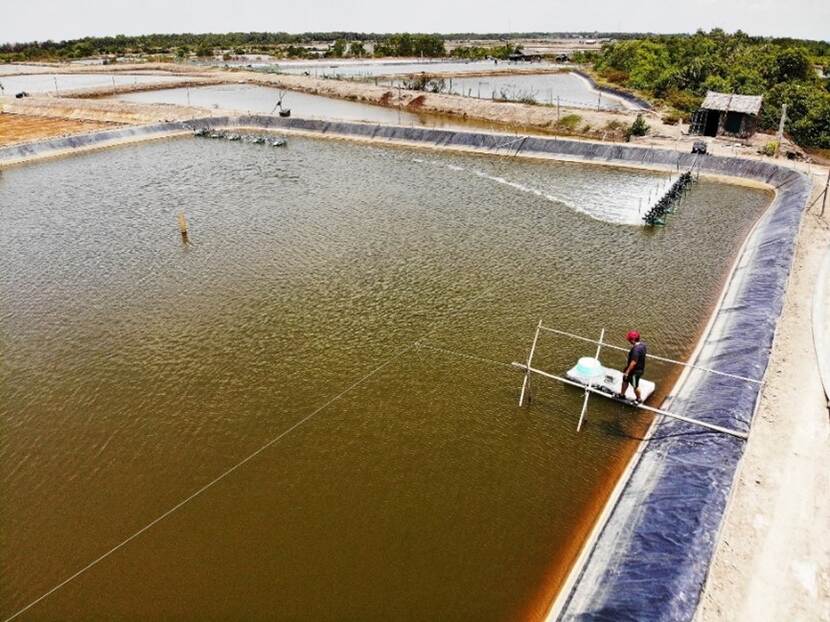Aquaculture Stewardship Council certificate in Vietnam's shrimp sector
Viet Nam, with its extensive coastline and favorable climatic conditions, has long been a significant player in the global shrimp farming industry. The country’s shrimp sector contributes significantly to its economy, providing livelihoods for thousands and generating substantial export revenue. Vietnamese shrimp contributes to 36% of Vietnam’s fishery export value of 4.3 billion USD in the first half 2024 and 13-14% global shrimp export value. Five biggest markets of Vietnamese shrimp are Europe (the Netherlands being the key market), USA, Japan, China and Korea.
Benefits of certification for sustainable shrimp sector development in Viet Nam
In recent years, there has been a growing emphasis on sustainable and responsible shrimp farming practices, particularly those certified by the Aquaculture Stewardship Council (ASC) and other certification schemes such as BAP, Global GAP, VietGAP in Viet Nam. These certifications offer environmental, economic, and social advantages that are essential for the sustainable growth of the industry. So far, there have been 192 BAP and more than 300 ASC certified shrimp farms in the country.
Viet Nam recognizes shrimp industry playing the key role in sustainable aquaculture development. The government is spending efforts in facilitating, providing orientation for the sustainable sector development, especially in the Mekong delta where locates 90% of shrimp production.

Environmental stewardship
One of the most pressing issues in conventional shrimp farming is its environmental impact. Non-certified farms often suffer from problems such as mangrove deforestation, water pollution, diseases and loss of biodiversity. ASC and VietGAP certifications address these concerns through stringent environmental standards. Certified farms are required to minimize their impacts on the surrounding ecosystem, maintain water quality, manage waste responsibly, and protect natural habitats. For instance, VietGAP (Vietnamese Good Agricultural Practices) focuses on local environmental regulations and sustainable farming methods tailored to Vietnam’s unique ecosystem. By adhering to these standards, certified shrimp farms can bring back revenue to farmers while preserving the country's rich biodiversity and natural resources.

Economic advantages
Economically, certification can be a game-changer for Vietnamese shrimp farmers. Certified shrimp can be traded at higher prices in international markets, as consumers and retailers are increasingly willing to pay a premium for responsibly produced seafood. This price premium translates to higher income for farmers, which can be reinvested in improving farm infrastructure and practices. Furthermore, certifications like ASC and VietGAP open up access to high-end markets in Europe, North America, and other regions where stringent import regulations favor sustainably sourced products. This enhanced market access can lead to increased export revenues and a stronger position in the global shrimp market.
In 2022, Viet Nam produced roughly 1 million tons of shrimp from areas of 747. 000 ha, earning 4.3 billion USD from export, accounting for over 45% of the country's total seafood exports. The introduction of sustainable practices has the potential to further boost these figures by appealing to environmentally conscious markets, especially in the context that Viet Nam targets 1.15 million tons of shrimp production on areas of 750.000 ha by 2025. See Viet Nam’s National Action Plan on Development of Viet Nam’s Shrimp Industry by 2025
Social benefits
Socially, certified shrimp farming brings numerous benefits to local communities in Vietnam. The certification process includes standards that promote fair labor practices, ensuring that workers are treated ethically and with respect. This includes safe working conditions, fair wages, and the prohibition of child labor. For example, VietGAP emphasizes the welfare of farm workers and community engagement. By meeting these criteria, certified farms not only improve the livelihoods of their employees but also foster a more stable and sustainable workforce. Additionally, many certified farms invest in community development initiatives, such as education and healthcare programs, further contributing to the well-being of local populations.
Consumer trust and safety
For consumers, certified shrimp offers assurance regarding the safety and quality of the product. The certification process includes rigorous testing and monitoring to ensure that the shrimp are free from harmful chemicals and antibiotics. This is particularly important in a global market increasingly concerned with food safety and traceability. By choosing ASC or VietGAP certified shrimp, consumers can trust that they are purchasing a product that is not only safe to eat but also produced in an environmentally and socially responsible manner.
Promoting industry best practices
The adoption of certifications like ASC, Global GAP and VietGAP in Vietnam’s shrimp farming industry also sets a benchmark for best practices. It encourages other farmers and companies to improve their operations to meet these high standards, fostering a culture of continuous improvement and sustainability within the industry. This collective effort can drive significant positive change, reducing the overall environmental footprint of shrimp farming in Vietnam and promoting long-term industry viability.

The benefits of certified shrimp farming in Vietnam are extensive and multifaceted. Late 2023, the Aquaculture Stewardship Council (ASC) has assigned MacAlister Elliott and Partners Ltd. (MEP) to conduct a study to understand real and potential benefits for farmers of ASC certification over the pre-certification conditions and non-ASC certification. The case study focused on intensive shrimp farming in Soc Trang only, therefore it did not provide a true reflection of the whole shrimp farming industry in Viet Nam. Still, we think it worths reading to understand the benefits derived from ASC certification compared to pre-certification conditions and non-ASC certified farms. Here is the link to the public summary report of the study on the website of ASC.
Contact
Do you have any questions for the agriculture department of the Netherlands embassy in Vietnam? Please send an email to HAN-LNV@minbuza.nl. For the latest updates, news, funding opportunities and more follow us on Twitter @AgroVietnam, and the Vietnam page on Agroberichten Buitenland.